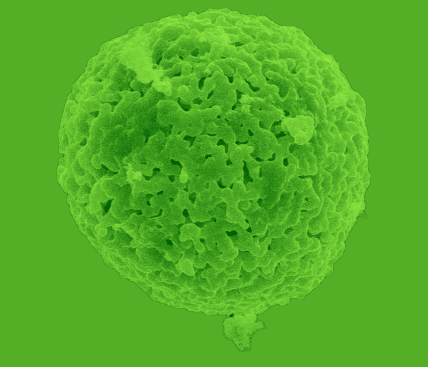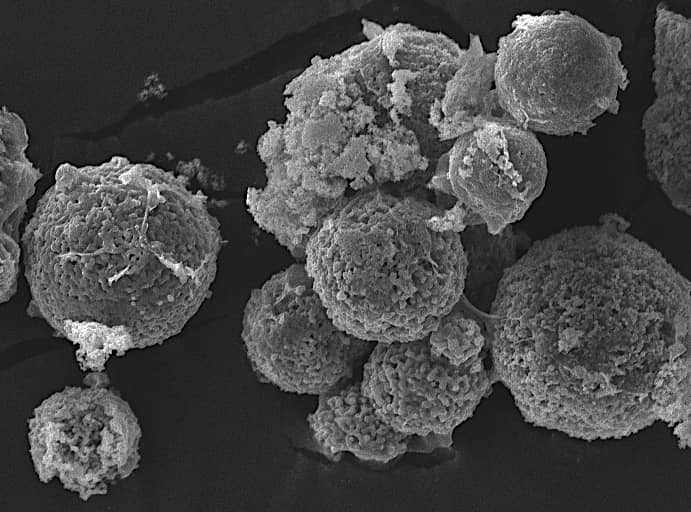Immunotherapy in the fight against cancer
Hydroxyapatite as a safe vector for transport and diffusion and tumour antigens.

Role of tumour antigens

An antigen is a foreign substance (usually a small piece of protein or peptide), which is recognised, targeted and destroyed by the immune system.
Antigens are present on the surface of all cells, but the immune system is obviously not designed to react against the cells of its own body.
On the other hand, when a cell undergoes cancerous transformation, new antigens are produced on the surface of tumour cells.
They are then considered foreign to the body and the immune system has the mission to destroy them.
However, even an effective immune system is not always able to destroy all cancer cells that can reproduce, group and form a mass of cancer cells (malignant tumour).
The animal's immune system is then overwhelmed, and cells whose role is to destroy tumour cells (usually T lymphocytes) can no longer be effective for various reasons, often due to a lack of presentation of these tumour antigens.
The immunotherapy treatment APAVAC

Hastim has expertise in hydroxyapatite, a compound perfectly tolerated by human and animal organisms.
This molecule is capable of selecting and fixing (so-called adsorption) proteins on hydroxyapatite particles in order to accelerate and improve the presentation of tumour antigens to the immune system.